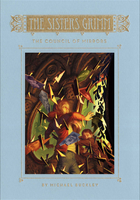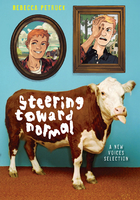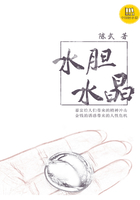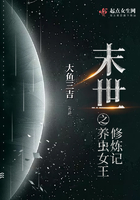We're losing patience with bad companies.
Not just the four of us authors, but Americans generally. And people across the globe.
Fed up with Goldman Sachs's greed and sickened by BP's pollution. Tired of tainted food, tightfisted employers, and “corporate social responsibility” that is more marketing spin than true caring for our communities.
Society hasn't given up on capitalist corporations. We rely on companies for the basic necessities of food, clothing, and shelter, as well as modern conveniences like computers, air travel, and wireless connectivity. And we love the surprises they generate, from iPads and Wiis to Snuggies and even Silly Bandz.
But collectively we're setting a higher standard for businesses. We're beginning to make it more difficult for them to profit from pillage and plunder. A convergence of forces—economic, social, and political—is pushing businesses to be better to their employees, customers, and communities. In effect, people are demanding that companies in their lives be “good company.”
We authors are big fans of Jim Collins and his influential 2001 book Good to Great: Why Some Companies Make the Leap… and Others Don't, which describes how companies can make the leap from good to great results. In Good Company, we focus on a fundamentally different concept of good: not as decent performance but as worthy behavior. And in the economic age that's emerging, companies cannot be great unless they are good.
We call this new chapter in our economic history the Worthiness Era. In it, the reactive, halfhearted corporate responsibility efforts common today will increasingly ring hollow. Only thoroughly worthy companies that genuinely seek to do more than enrich a narrow set of shareholders and executives will thrive.
This a hopeful message. But it is not a softheaded one. A range of hard evidence points to this conclusion. Evidence from the stock market. From surveys of workers and consumers. From interviews with leaders of companies both big and small who agree a new economic era is at hand.
You may be skeptical. Amid a tepid recovery, after all, high unemployment is giving companies the upper hand with workers. And the world has just witnessed galling examples of corporate wrongdoing. Goldman Sachs bets against clients and exacerbates the Great Recession of 2008-2009 with its casino-like operations—then posts record profits. BP, with its “beyond petroleum” motto, fouls the Gulf of Mexico with a massive oil spill—but continues to rake in billions in revenue. It can look like the bad guys finish first.
But their days are numbered. The good guys have the wind in their sails. We took a tough-minded look at whether worthiness pays off with the Good Company Index, our ranking of the Fortune 100 (the 100 largest businesses on the Fortune 500 list of America's largest corporations) regarding their records as employers, sellers, and stewards of society and the planet. The results were clear. Companies in the same industry with higher scores on our index—that is, companies that have behaved better—had outperformed their peers in the stock market.
These “good” companies show the tremendous power of seeking win-win relationships with all their stakeholders—employees, customers, shareholders, and the communities where they do business. A business ethic of real reciprocity, in other words, reaps rich rewards.
The four of us authors couldn't be happier with this finding. We have made careers in business and journalism, fields that depend on dispassionate, coolheaded analysis. But of course we have our passions as well. In particular, we share a belief that workplaces, too often the sources of people's problems, can instead become solutions to those problems. As we worked to articulate this shared perspective, we came to understand the ways that being a good employer, being good to customers, and being a good steward are fundamentally connected. That understanding—and our commitment to better workplaces—set us on the quest that has culminated in this book.
For Laurie it all started when she was a young assistant professor of economics at Georgetown University in the mid-1980s. She found herself deeply moved by an interview she did in a steel mill with a worker who told her that he went home at the end of every day, “whupped, tired, and disgusted.” That started Laurie thinking. What if that workplace could be changed, so that worker could come home more energized or could learn new skills at work? What would those changes mean for his ability to raise his children, to become more involved in their education, or to contribute more actively to his community? And what if that could be played out in millions of workplaces, touching hundreds of millions of lives?
As a result of that conversation, Laurie's research took a different turn. She focused her work on the relationship between corporations' workplace practices (especially those related to employee management and development) and business results. If she could identify what practices improve the bottom line while also enhancing the lives of employees, those would be practices that employers should want to pursue while simultaneously changing the workplace in a positive way.
Along the way, Laurie met and enrolled Dan (one of her graduate students at Georgetown), followed by Larry (an early client of the consulting firm that she and Dan founded), and finally Ed (a journalist who met Laurie and Dan while writing a profile of them).
We have written Good Company for leaders at all levels within organizations—from frontline employees up to the Board of Directors—who want to be better prepared to help shape the future of their organizations in positive ways. But the book is also written for all consumers and investors who seek to understand, benefit from, and contribute to the emergence of the Worthiness Era.
Good Company is divided into four parts, which can be read in sequence or separately. Part I outlines the forces that herald the beginning of the Worthiness Era. Chapter 1 provides a high-level overview of a convergence of forces—economic, social, and political—that is behind the “worthiness imperative,” while Chapters 2 through 4 describe each of these forces in turn.
Part II focuses on quantifying the Worthiness Era from an organizational perspective. If you want to see evidence that good behavior will make or break firms in the near future, go to Chapter 5. If you want to jump right to our Good Company rankings of the Fortune 100, skip to Chapter 6. While the evidence and rankings in this part are focused primarily on large, publicly traded companies (because of data availability), the perspective is relevant for all organizations, including small businesses, privately held companies, and nonprofit organizations.
To get the very latest Good Company rankings, visit our Web site: www.goodcompanyindex.com. The site also offers additional features, including the ability to drill down into the data behind each company's rating.
Part III spells out the essential components of being a good company. For details about being a good employer, go to Chapter 7. More about developing a worthy relationship with customers and being a good steward can be found in Chapters 8 and 9, respectively.
In Part IV, Chapters 10 and 11 provide a glimpse into the future of worthiness, including how the concept dovetails with the rise of Asia as an economic power.
Work on Good Company began before the Great Recession. We were concerned, to be honest, that harsh economic times might reverse a nascent trend of more ethical economic behavior by consumers, workers, and investors. People could have focused strictly on selfish needs like low prices and quick, high returns. They could have lowered their standards and dealt a blow to the Worthiness Era. But by and large they didn't. Despite some personal sacrifice, people continued to make choices that were caring toward others and thoughtful about the planet's future. And as we complete this book in early 2011, all signs indicate those trends will strengthen in the years ahead.
In other words, people are keeping each other company better than they have in the past. That means we—all of us—no longer want to keep company with bad companies. And pretty soon we won't.















